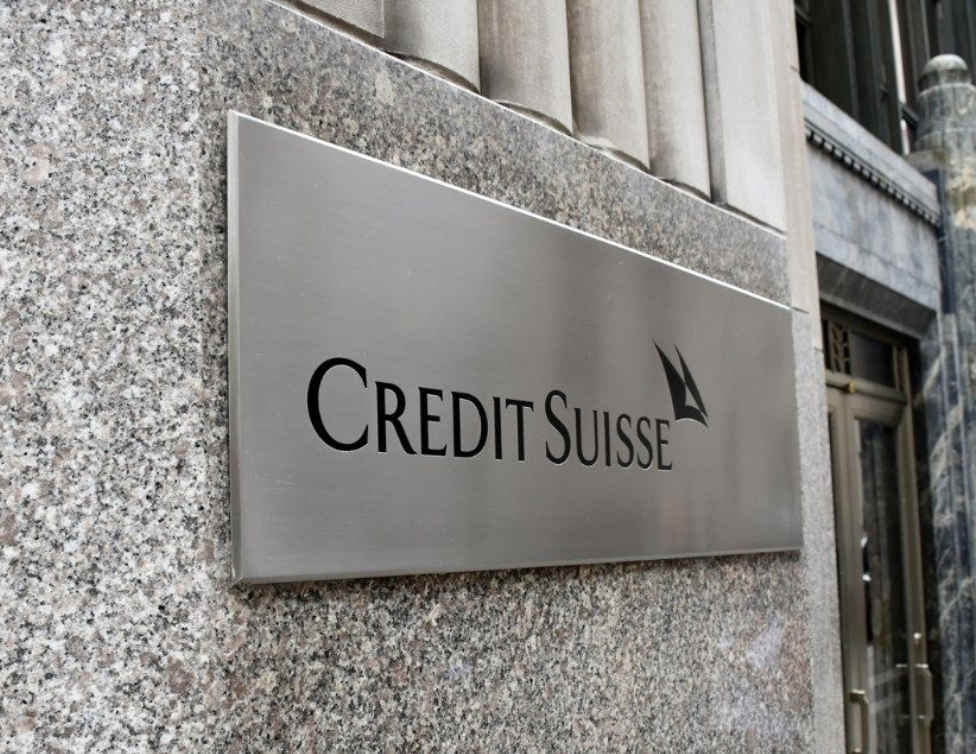Financial Results
Credit Suisse Notes Internal Controls "Material Weaknesses," Shares Plunge, Trading Halted

After the delayed publication of its 2022 annual report, the banking group said there had been some issues with its internal controls. It also said that while the pace of outflows had slowed, they had not yet stopped. Today, shares plunged, and trading in the stocks of a number of European banks was temporarily halted.
(Updated with share price plunge, trading halts.)
Shares in Credit
Suisse plunged today by more than 20 per cent and trading was
temporarily halted, after its shares slipped following the bank's
delayed annual report. The document, issued yesterday, identified
"material weaknesses" in its internal controls over financial
reporting. Switzerland’s second-largest bank said it had not yet
stemmed customer outflows.
As investors worried about the western world's banking sector because of the collapse of Silicon Valley Bank, shares in Credit Suisse and a number of other European lenders came under pressure.
Saudi National Bank’s chairman - the largest investor in Credit Suisse - Ammar Al Khudairy has reportedly ruled out injecting further funds into Credit Suisse if there was another call for additional liquidity. Al Khudairy told Reuters that Saudi National Bank cannot provide the Swiss bank with more financial assistance, saying: “We cannot because we would go above 10 per cent. It’s a regulatory issue.”
Share trading was also temporarily halted today in BNP Paribas; Societe Generale. Societe Generale; UniCredit and Monte dei Paschi, reports said.
Last
week, the lender, which operates in jurisdictions around the
world, jolted investors by saying it was delaying release of the
annual report following a call with US regulators.
"As of 31 December 2022, the Group’s internal control over
financial reporting was not effective, and for the same reasons,
management has reassessed and has reached the same conclusion
regarding 31 December 2021," the bank said in the report.
Around 1 pm Swiss time today, shares in the lender were down more
than 25 per cent. Global markets have been rattled by the
collapse of US-based Silicon Valley Bank, Signature Bank, and the
signs that rising interest rates are hurting sectors such
as technology.
The bank, which has suffered from a series of mishaps and
scandals, logged more than SFr110 billion ($112.24 billion) in
customer outlflows. Credit Suisse said "outflows (had) stabilised
to much lower levels but had not yet reversed." (To see its
full-year results,
click here.)
The troubles come at a tough time for the wider banking industry
following
the collapse late last week of Silicon Valley
Bank.
A report by Reuters (14 April) said the cost of insuring
against a Credit Suisse debt default also rose to a record of 466
basis points, rising 49 bps from Friday's close.
In the preamble to the report, Axel Lehmann, chairman and Ulrich
Körner, CEO, said: “The transformation we announced and started
in 2022 is fully underway. Both in 2023 and 2024, we will be
absolutely focused on the execution of our strategic plans,
transforming into the new Credit Suisse with its leading
franchises in Switzerland and in wealth management, strong
capabilities in asset management and markets and the carveout of
CS First Boston as a leading capital markets and advisory
business.”
The bulk of the report spells out the ways in which the bank
said it is restructuring its business, reducing risk exposures
and pivoting to areas which are less capital intensive.
The report reiterated that at the end of last year, its Basel
Common Equity Tier ratio – a standard international measure of a
bank’s financial strength – was 14.1 per cent.
On 9 March Reuters reported, citing unnamed
sources, that Julian Gooding was leaving the bank. He is given as
chief compliance officer. Credit Suisse declined to comment
to WealthBriefing and sister
publications on the matter.
